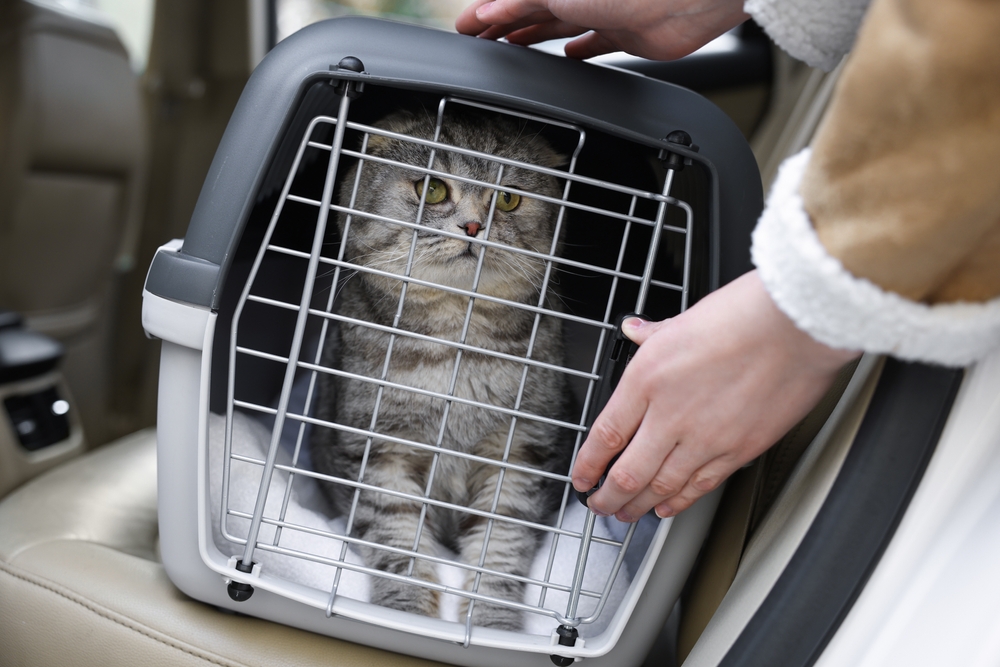Natural disasters can strike at any time, and Austin is no exception. As a pet owner, it’s essential to ensure that your pets are just as prepared as you are for the potential risks in Central Texas. Whether it’s a tornado, flash flood, or extreme heat, planning ahead can make all the difference.
Why Prepare?
Pets can easily become frightened or disoriented during natural disasters, which increases their risk of injury or separation from their families. Austin, Texas, is prone to various natural disasters, including:
- Tornadoes: Central Texas is part of Tornado Alley, meaning your pet could face dangerous high winds and flying debris.
- Flash Floods: Flash flooding is a frequent issue during Austin’s heavy rain events, which can rise quickly and displace your pet.
- Extreme Heat: Prolonged periods of extreme heat during summer can lead to heatstroke in pets if not properly managed.
- Winter Storms: Winter storms, like the deadly 2021 freeze, can result in power outages and freezing temperatures, putting pets at risk.
- Wildfires: Due to the dry climate, Austin is at risk for wildfires, which can quickly spread and endanger pets.
- Drought: Long droughts impact water supply and can lead to environmental hazards for pets.
- Hurricanes: While Austin is not coastal, hurricane winds can still reach the area, bringing severe winds and rain.
A well-prepared plan can ensure your pet stays safe, healthy, and with you, no matter the disaster.
1. Create a Pet Emergency Kit
Just as you have a kit for your family, your pet should have one too. Here’s a checklist of items to include in your pet’s emergency kit:
- Food and Water: Pack at least 3-7 days’ worth of food and water for each pet. Ensure food is stored in waterproof containers, as flash floods can be a concern.
- Medications: If your pet requires daily medication, have a supply of at least two weeks in the kit, along with a copy of prescription instructions.
- Medical Records: Keep a copy of your pet’s vaccinations, microchip number, and other health records in a waterproof bag.
- First Aid Kit: Include pet-safe wound care supplies such as bandages, antiseptic wipes, and any medication your pet might need.
- Leash, Collar, and ID Tags: Ensure your pet’s ID tag is up to date with your contact information. Have extra leashes and collars handy, especially for sudden evacuations during storms.
- Comfort Items: A blanket, favorite toy, or something that smells like home can help ease your pet’s anxiety during stressful events like tornadoes or wildfires.
- Waste Bags and Litter: Have enough waste bags or litter to last several days, along with a container to dispose of waste if necessary.
- Crate or Carrier: In case of evacuation, your pet may need to be confined for safety. Ensure their crate or carrier is sturdy and labeled with your contact information.
At Star of Texas Veterinary Hospital, we offer resources to ensure your pet’s health is always up to date. It’s a good idea to visit our Services page to ensure your pet is current on vaccinations and flea prevention, as these can be particularly important during natural disasters when the risk of exposure to parasites, pathogens or other animals is higher.
2. Microchip Your Pet
In the chaos of a natural disaster, pets can get lost. Whether it’s a tornado, flash flood, or wildfire, your pet may become separated from you. Microchipping your pet is one of the most effective ways to ensure they can be reunited with you. If your pet is already microchipped, make sure your contact information is current with the microchip provider.
If you haven’t yet microchipped your pet, schedule an appointment with us today. Microchipping is a simple, low-cost procedure that significantly increases the chances of finding your pet if they become lost.
3. Evacuation Plan
Austin’s risk for tornadoes, flash floods, and wildfires makes it essential to have a clear evacuation plan for your pet. Most public shelters do not allow pets (except service animals), so it’s critical to plan for pet-friendly options:
- Identify Pet-Friendly Shelters and Hotels: Research and list shelters and hotels that allow pets along your evacuation route, particularly if you’re fleeing from wildfire danger or severe storm warnings.
- Friends and Family: Arrange with friends or family outside of the disaster zone who may be willing to care for your pet in a time of need.
- Transportation: Ensure you have a plan to transport your pet safely. This could include a crate or harness to keep them secure during travel in case of an evacuation.
4. Stay Informed
Austin weather can change rapidly, and being prepared is crucial. Sign up for local weather alerts through emergency apps or text alerts, and pay attention to evacuation orders, severe weather warnings, or fire danger levels. Being informed allows you to act quickly and make the best decisions for you and your pets.
5. Practice Your Plan

Don’t wait until a disaster strikes to implement your emergency plan. Practice evacuating with your pets, especially for tornado or flood situations, to help familiarize them with the process. If you have cats, for instance, getting them used to their carrier before an emergency can reduce the stress for both you and them when you need to leave quickly.
Regularly check that your pet’s emergency kit is up to date and ensure that your pets’ health and vaccination records are current. At Star of Texas Veterinary Hospital, our Services page can guide you on scheduling wellness checks and keeping your pet in top shape.
Conclusion
Preparing your pet for the natural disasters common in Austin, Texas, is one of the best ways to protect them when things go wrong. By creating an emergency kit, microchipping your pet, making evacuation plans, and practicing, you’ll ensure your pet is ready to face any situation, from tornadoes and flash floods to wildfires and extreme heat. Visit Star of Texas Veterinary Hospital for more tips, resources, and to schedule wellness visits so your pet is prepared for any emergency.




